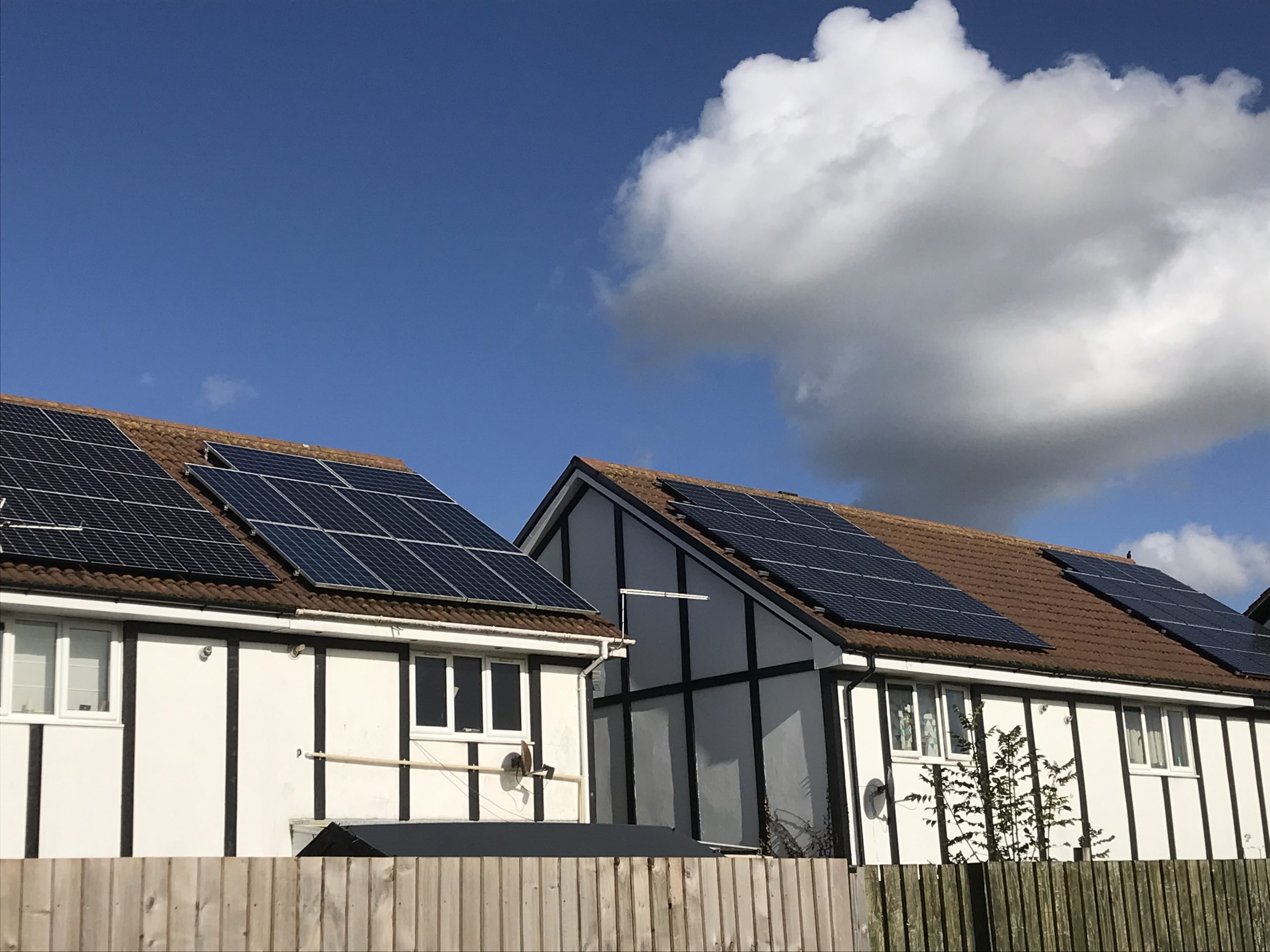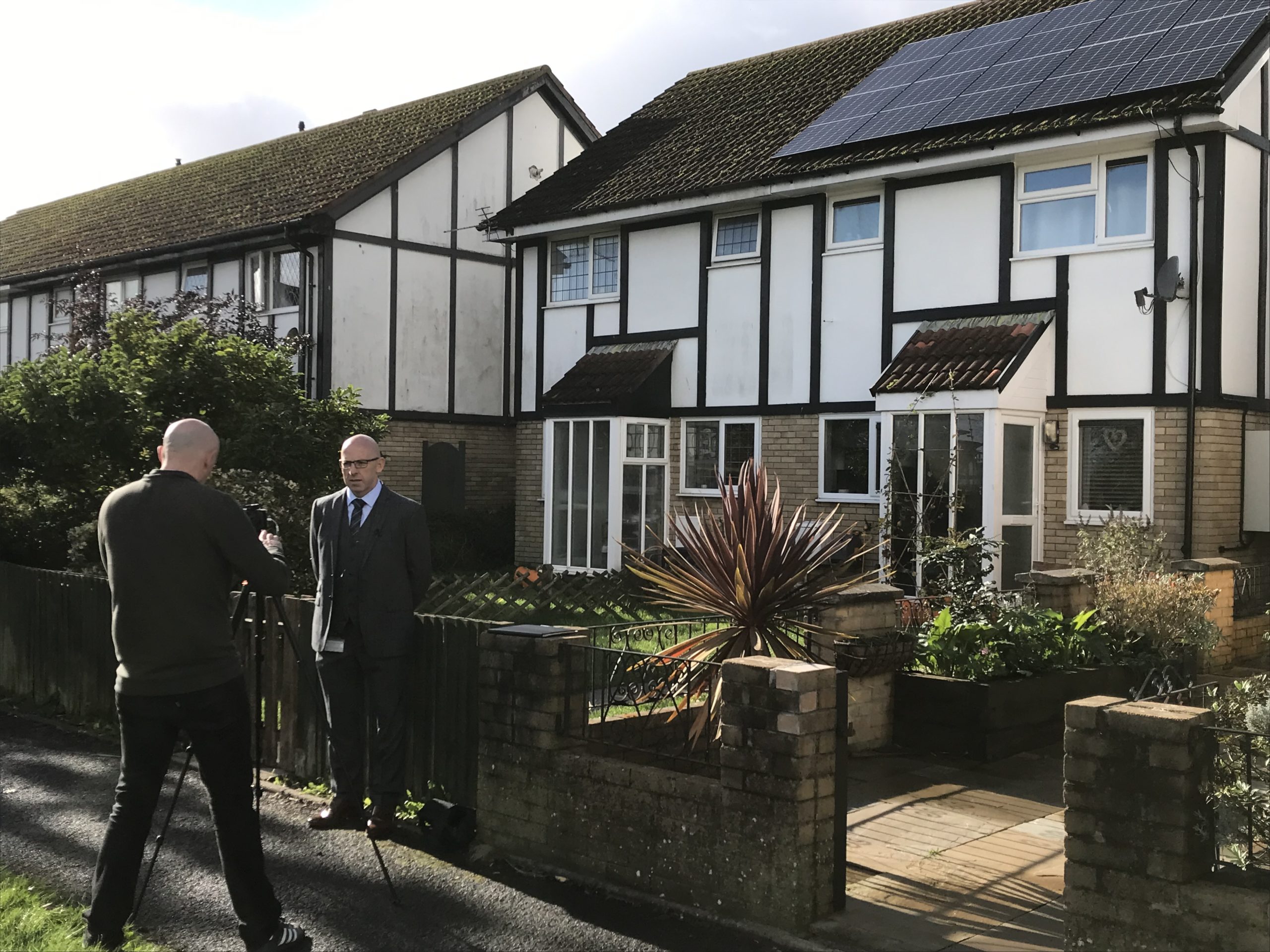Energy-efficiency leads to lower bills for WWH residents
Wales & West Housing resident Sarah Canning has seen a “massive” drop in her electricity bills since her home was fitted with energy-efficient technologies.
Sarah, her partner and three children aged between 8 and 15, moved into their three-bedroom semi-detached home in Lavender Court, Brackla, eight years ago and were spending an average of £20-£30 per week on electricity.
In July their 1970s home was fitted with energy-saving technologies as part of an Optimised Retrofit Project (ORP) – a Welsh Government-funded collaboration of 26 social housing providers including Wales & West Housing, which will see 1,724 homes in Wales fitted with energy efficient measures.
Her home was fitted with photovoltaic (PV) panels on the roof, a battery to store the solar power and an Intelligent Energy System, which captures all the home’s energy information including heating demand, average temperatures, humidity and battery storage. The family can also track their energy use through an app on their mobile devices.
As part of the ORP Wales & West Housing fitted new technologies to 20 selected homes at Ruabon, North Wales, Llandysul and Bryn Salem in Ceredigion and Bridgend.
Sarah says she has massively reduced her electricity consumption as a result and the family is expected to save around £300 since the fitting.
“Since the solar panels were fitted in April, we have only spent £80 in total on electricity. With three children in the house, we use loads of electricity. The lights are always on, and they have televisions and laptops for their homework.”
WWH resident Sarah Canning
“The work to fit the system was done quickly. The scaffolding and solar panels were put up on the same day and the rest of the work was completed within three days.
“We have a battery fixed to the wall outside our house and a box on the lounge and kitchen wall which are like the brains of the house and monitor the energy we use.”
“The staff from Wales & West Housing and their contractors who carried out the work were really professional and there was hardly any disruption to our family. I would recommend having this work done to anyone. My experience has been positive, 100 per cent.”
“Before I had the solar panels fitted, we couldn’t afford to have a tumble drier but now we are going to buy one with the money we are saving.”
The Optimised Retrofit project is one of several projects WWH is exploring to find ways of decarbonising its homes. The organisation is also working with the Welsh School of Architecture at Cardiff University and carrying out its own work on a selection of its 12,000 homes to fit energy-saving measures and monitor their effectiveness.
In recent years WWH has installed over 400 air source heat pumps and ground source shared loop systems and updated loft and cavity insulation.
Vic Cox, Director of Property Services at WWH, said: “The Optimised Retrofit Programme is a good initiative and from the start we wanted to be part of it and share experiences with other social landlords.
“Decarbonisation is not on a lot of people’s radar. When we look at climate change, part of our engagement with residents is educational – how can we help them cut their bills and make their homes warm and affordable and easy to heat?”
Vic Cox, Director of Property Services at WWH
“At Lavender Court we have installed PV systems on the roofs and coupled that with new technology that we are using for the first time of battery storage. When we look at these combined the performance monitoring is showing significant savings for the residents.”
“As well as having decarb on our agenda, we are looking at our homes and the people who live in our homes. Utility costs are hitting our residents hard and we want to be able to do something about that.”
“The decarbonisation of all our homes is not an easy job – there are some big challenges ahead and we are looking to Welsh Government for guidance to build a strategy for the future.”



